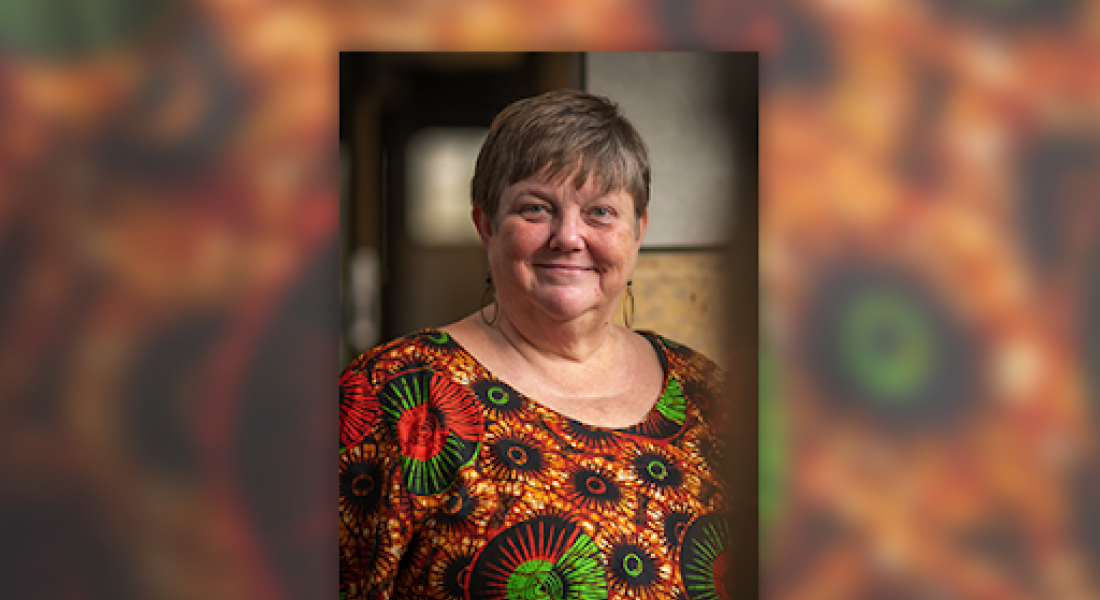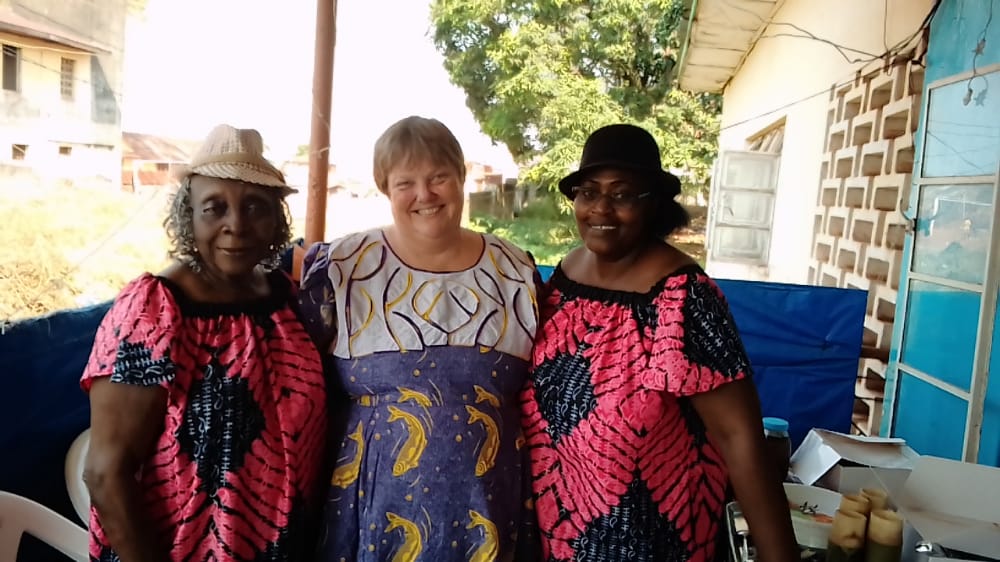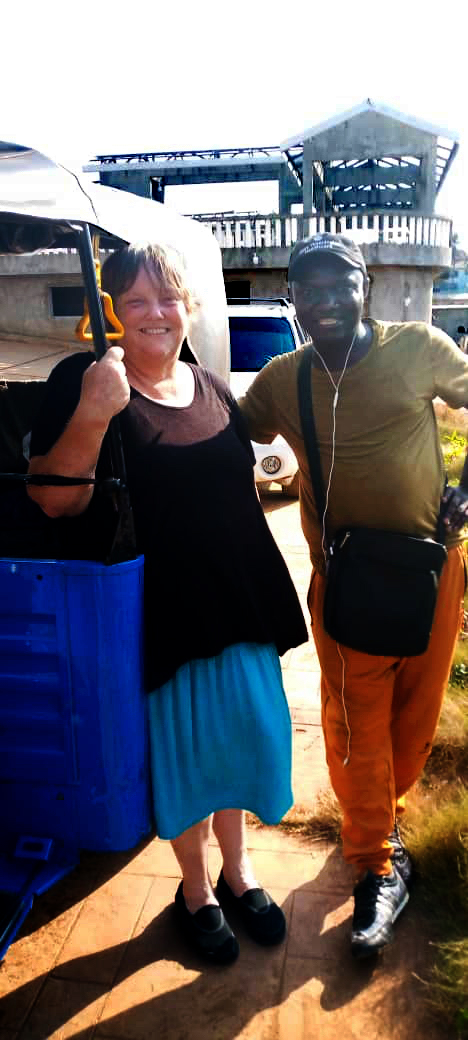
Susan Shepler is an anthropologist who loves numbers and patterns.
As a young Peace Corps volunteer in the late 1980s, armed with a new mathematics degree and the fervent belief that a solid education in math could help those in the developing world, she went to Sierra Leone to teach.
“I saw an education in math as foundational to all other kids of academic pursuits, scientific and otherwise, and I believed that helping people learn about math could be a way to address true inequalities,” she said. “I had almost a missionary zeal about it.”
When she returned to the United States several years later, Shepler entered a PhD program in mathematics at the University of California at Berkeley.
But her time in Sierra Leone, a small former British colony on the west coast of Africa, had broadened her perspective and lead her to ask tough questions about power, post-colonialism, and how power structures are reproduced.
Motivated by a commitment to social justice, Shepler eventually abandoned her studies in math for another doctoral program at Berkeley – this one in social and cultural studies in education.
 Today, Shepler is an anthropologist and an associate professor in the School of International Service at American University who studies conflict-affected areas of West Africa. Her first book, Childhood Deployed: Remaking Child Soldiers in Sierra Leone, examines the reintegration of child soldiers in the country. Her overall work seeks to understand how local communities interact with international interventions, and how factors like gender, age, ethnicity, and religion shape those local responses.
Today, Shepler is an anthropologist and an associate professor in the School of International Service at American University who studies conflict-affected areas of West Africa. Her first book, Childhood Deployed: Remaking Child Soldiers in Sierra Leone, examines the reintegration of child soldiers in the country. Her overall work seeks to understand how local communities interact with international interventions, and how factors like gender, age, ethnicity, and religion shape those local responses.
Now a visiting fellow at the Kellogg Institute for International Studies, Shepler is working on a new book that ties together her academic interests in math and anthropology with her decades of field research in Sierra Leone – including during the Ebola outbreak of 2014-2016.
“The book is almost a way to sum up a career’s worth of engagement there and reflect on really central questions of power and authority and legitimacy,” she said. “As an anthropologist, I’m looking from the ground up at how people engage with power and solve problems. What different forms of political authority do they call on when they need something?”
“Power You Can Trust”: Fractal Sovereignty in Sierra Leone examines how the coastal West African nation’s power structure differs from that of the West, and does so through the lens of the mathematical concept of fractals.
Fractals are never-ending patterns that are equally complex as they grow in scale. They’re found throughout nature – think the bark and the branches of trees, the blossoms of a flower, or even the vessels in human lungs.
All are copies of what came before them and can be endlessly replicated at smaller or larger scales. And, Shepler argues, the concept of fractals can be applied to the complicated – and sophisticated – political systems of previously-colonized African nations like Sierra Leone.
There, what Westerners think of as “the state” is just one piece of a larger field of political power that includes elected officials as well as a range of non-state actors: tribal chiefs, secret societies, nongovernmental organizations, international groups, churches and mosques, unions, and even extended family members.
Her research examines how everyday people seek out governance – for instance, when someone is the victim of a crime, do they call the police or an authority figure without government backing, like a tribal elder, for help?
“Broadening the scope beyond only state actors, as I do with fractal sovereignty, leads us to ask who else citizens might hold accountable and how,” Shepler said. “This broadens our conceptions of democracy.”
Meanwhile, in a country with a history of war and natural disasters, the ongoing presence of international aid and development groups – all trying to navigate Sierra Leone’s tangle of elected and civil society authorities – further complicates the picture. But Shepler claims that the pattern of interactions among those groups follows a pattern similar to the famous Mandelbrot set.
“You see patterns reproducing at the international level, the national level, the local level,” Shepler said.
Her conception of power challenges traditional Western assumptions about Africa, as well as the idea that development “means taking these simple places and making them more like us.”
“My book is a study of actually existing African politics, rather than the usual approach that casts African politics as a failure measured against an ideal type,” she said. “I want to almost flip that on its head and say African polities have existed much longer than Western polities, and African polities are much more complex and been around for much longer than ours.”
Ebola, fractals and the outside world
Shepler, who was in Sierra Leone shortly after the Ebola outbreak began, uses the health crisis to examine the overlapping layers of governance within the country as well as the relationship between citizens and the state. She described the early days of the virus, including public mistrust of the government’s handling of the disease and why many were reluctant to send sick family members to foreign-staffed hospitals, in a blog post.
Her book asks: What happens when Western interveners try to operate in a political system they don’t fully understand?
“The outside world bumped up against it and was somewhat flummoxed by it,” she said. International organizations often had to rely on local connections, rather than official ones, to do things like request that vehicle be sent to an Ebola quarantine or to collect and bury the dead. And even then, figuring out which local authority figures are best positioned to help – perhaps a chief, a priest or a tribal elder – is a struggle, with the answer varying from place to place.
That’s where fractal sovereignty comes in. As a theoretical contribution, Shepler said fractal sovereignty can lead to better interventions and outcomes by giving people a more complex and realistic conception of power. By mapping that political complexity, intervening groups can better learn how to partner with local authorities, and who they should be working with on the ground.
“If it is worth spending research funds to map the Ebola genome, for example, it should be worth spending funds to map the complex political ground in Sierra Leone, and perhaps to develop tools to do so in other so-called ‘weak states,’” she added.
An ‘ethical’ interdisciplinary space
Today, Shepler is somewhat less convinced that formal education could solve the problems of the developing world. But her viewpoint as a social scientist has been deeply shaped by her background in math. And her work continues to draw from other fields – particularly from political science – in an approach that mirrors Kellogg’s emphasis on interdisciplinary scholarship.
Kellogg’s residential visiting fellowship program gives scholars from around the world space to pursue projects related to the Institute’s core research themes of democracy and human development. Shepler said her time at Kellogg has given her a uniquely supportive environment to finish her book.
“I needed the space for deep reflection and uninterrupted time. I also wanted an interdisciplinary space that was ethical, and not just academic, in its outlook,” she said. “Kellogg feels very comfortable and familiar to me, and it’s a place that’s supportive of the kind of interdisciplinary work I do.”





